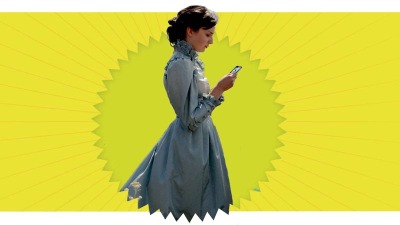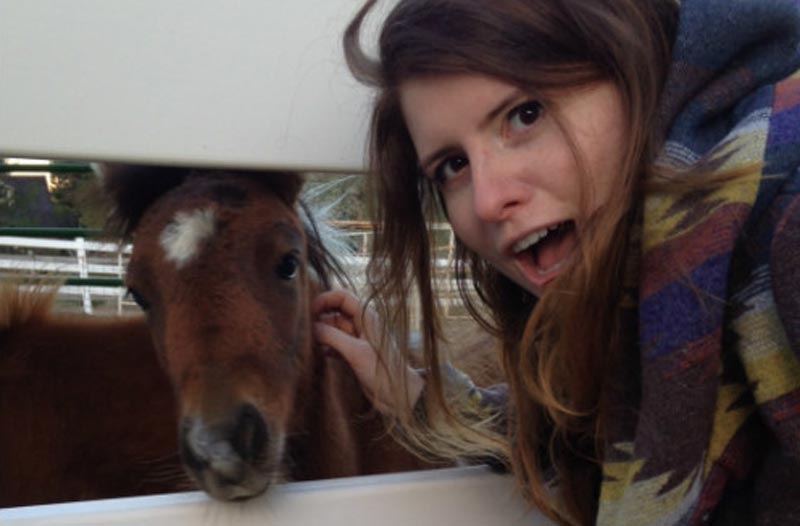A recent review in the Los Angeles Review of Books referred to your work at The Toast and in Texts from Jane Eyre as the “Mallory Ortberg dismantling machine,” specifically in reference to your ability to take down high-art concepts, not to mention the myth of the Lone Male Genius.
One thing that’s important is that you can dismantle something and still love it and still think it matters. That’s important to me, anyhow. There’s an idea that if you really love something, you can’t laugh at it. I don’t think this is true. There are aspects of that kind of literature that deserve to be laughed at and need to be laughed at. I went to a school and grew up reading these books like Moby Dick and Hamlet, and they were presented in a way like, “here’s what they are.” But I always had my own thoughts about them.
The reviewer, Sarah Mesle, also referred to your book as a “significant contribution to feminist literary criticism,” even though some might write it off as another blog-to-book stocking stuffer.
Which was something I was worried about. It was important to me that people understood it wasn’t that. It’s not just like, “What if people from the past had emojis, that would be hilarious because their technology is different from ours!” The jokes are really about the way that these characters behaved with each other, in ways which don’t tend to get criticized or examined. Anything that’s really dramatic, or overwrought or self-serious. Anything that’s clearly awful behavior that’s being rationalized away. It’s really fun to poke at that with a strategic use of jokes. Jokes are my favorite form of criticism.
And the book came out of the “Texts from Scarlett O’ Hara” post?
Yeah, that was the first one. People responded to it so quickly and I had such a good time doing it. It became apparent that it wasn’t a one-off joke about a particular book. It works for a ton of classic literature.
What about it do you think people gravitated to?
The interactions are really rooted in characterization, so people who are familiar with those characters got it in one way. But I tried to find something that was really familiar in these interactions and to connect to ways that we interact with each other now. For example, the Edgar Allen Poe piece. It definitely helps to be familiar with “The Raven,” and it helps to be familiar with his crazy poem about bells. He literally repeats the word “bells” 50 times and that’s bonkers. Yet even if you’re not familiar with that part of his work, but you do know about trying to get out of something that you know you’re supposed to go to, and that you’re not giving someone enough advance warning, and you know you’re behaving badly but you don’t want to be criticized for it, that’s when you send someone a text message five minutes before the event is about to start, and you’re falsely cheerful and bright like, “Hey, I know it’s no big deal but I’m not going to make it tonight sorry!” because you’re trying to preemptively avoid criticism.
There are things from these classic works, like The Odyssey and Hamlet, that stand the test of time in regards to humanity, but you’re bringing it into this super modern context.
I didn’t want people to only be able to appreciate it if they had an English degree. If you’re vaguely familiar with a handful of well-known books, and/or you’ve ever had a phone, and/or ever had a slightly disappointing friend, you’ll get it. It’s definitely accessible to a wide swath of people. And it has more to do with how we behave and how certain behavior tries to escape criticism, rather than “Wouldn’t it be really funny if a guy wearing a cravat had text messaging?” Because that’s only going to carry you maybe five minutes, and then you’re going to be: okay, Mr. Darcy, cell phone, got it.
The reason texting, in this case, was useful, is because there’s an immediacy to it. You can get a hold of somebody any time of day. You don’t have to be in the same room and you can talk without having to see their face, and you can say things you might not necessarily say in person.
What was the process of putting the book together like?
I re-read a quarter or a third of the books. Most of the books I had read so many times that they were all already in my head. It was very Talmudic; I just remembered because I read a ton as a kid. I re-read parts of The Epic of Gilgamesh, Medea, and parts of King Lear to refamiliarize myself with the characters and the world they lived in. I was able to work out a lot of the material online for about six months to a year before I started getting serious about the book.
In the book’s promo video, you say something like, “The Western canon is filled with jerks.”
Obviously, these are jerks that I care deeply about and jerks that I love, but yeah, it’s the big tragic flaws that make them interesting and also what makes them really frustrating. The way that somebody behaves in a grand tragedy is really fascinating and stirring and moving when you’re watching it from the audience, but if it’s a part of your real life, it’s unbelievably frustrating.
Exactly—you wouldn’t necessarily want to be friends with Hamlet, for example!
In the play, it’s like, this guy is very important and serious and he needs to spend a lot of time ruminating about the nature of life and meaninglessness and death, and that’s fascinating and I cry when I read it and it means a lot to me and stirs me deeply. But the flipside of that is, you know, he’s in his thirties, he has not finished school, he’s living in his mother’s house, and he’s just being rude at dinner. Which has nothing to do with meaning and existence, and everything to do with throwing a goddamn temper tantrum. While he’s deciding whether or not to murder everybody, he’s also rooming for free at his mom’s place and eating dinner with her and being a dick. And then telling his girlfriend, who’s not really his girlfriend, that they were never really going out. In the play it’s so tragic, and she goes mad, but it’s literally like he just rolled up to her house and said, “You didn’t think we were really going out, right?” And it kind of loses its tragic importance when you put it in those terms.



